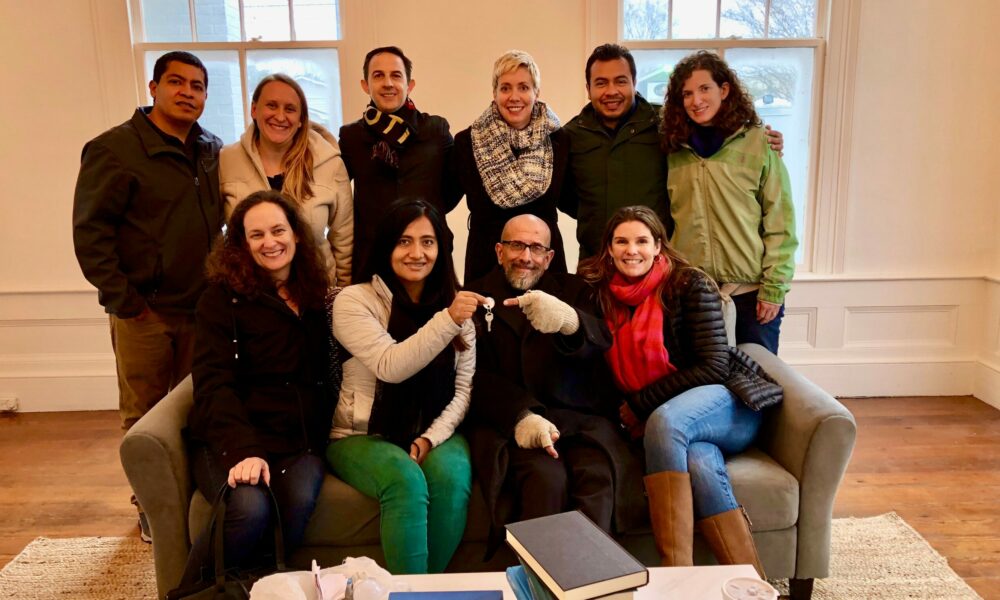

Today we’d like to introduce you to Amilcar Valencia.
Hi Amilcar, we’re thrilled to have a chance to learn your story today. So, before we get into specifics, maybe you can briefly walk us through how you got to where you are today?
I was born in La Libertad, El Salvador.
Growing up in a poor rural community called Las Delicias was not guaranteed access to a college education or given all the tools necessary to succeed. Also, I was born in a country during the civil war. My family taught me to work hard to accomplish my dreams, and my community taught me to always to give back.
Las Delicias was not a combat area, but like all Salvadorans, I experienced the secondary effects of a country in civil conflict. Perhaps one of the things that struck me the most was my family’s migration to the United States. Like many other family members, my mother was expelled during the armed conflict and sought refuge abroad. I stayed in Las Delicias with my grandmother and aunts; they became my world; there, they educated me, and I learned to survive in a post-war rural community with many limitations. During my childhood, I witnessed the rise of gangs, and like everyone else, I learned to live under that shadow.
Growing up in El Salvador, I faced many challenges in life, and perhaps one that impacted me greatly was the lack of resources to pursue higher education. My grandmother instilled in me the importance of education. That was the legacy she left me. I graduated high school, but I had no idea if I would be able to continue studying. At this point in my life, I was involved in my community doing a lot of volunteer work, but I knew I wanted to do more. I tried, unsuccessfully for two years, to get accepted at the National University of El Salvador; a very competitive process and limited spots let out those who come from rural areas and are not properly prepared for the national exam. My world crashed on me, but I didn’t give up. I continue doing volunteer work and found a job as a computer instructor. The director of a local nonprofit I volunteered for talked to me about an opportunity that changed my life. Long story short, I got a scholarship to study at the José Simeon Cañas Central American University (UCA). I continue working as a computer instructor while taking classes at the UCA. I graduated with a degree in Theology. My formative years were marked by a desire to serve, seek justice, and live in solidarity with marginalized people. In 2007 I met the woman who later became my wife.
I left El Salvador in 2010 to live with my wife. Our passion for justice led us to the immigrant movement supporting people affected by immigration policies in the United States. My wife and I were founding members of El Refugio, a grassroots organization founded by Alterna (now Casa Alterna). We began organizing visits with people detained at Stewart Detention Centers (SDC) in Lumpkin, GA. These visits led to conversations with the loved ones of people detained, many of whom had traveled several hours and had no place to rest or sleep before their long journey back home. The traumatic experiences of these families made clear the need for a safe and welcoming space in Lumpkin. We rented a three-bedroom house to welcome families. We began offering hospitality to visiting families and friends, affirming the dignity of those directly impacted by the inhumane and unnecessary detention system. The volunteers also visited people at SDC whose families and friends could not make the trip to Lumpkin
Since 2015 I have served as the Executive Director of El Refugio. As an immigrant with many family members with mixed immigration status, I understand the plight of those living under the threat of detention and deportation. Working at El Refugio, close to the people directly impacted, has marked my life. I am driven by a deep desire to fight for the human dignity of immigrants. I am passionate about making the affected community visible, raising their voices, accompanying them in their struggles, and supporting their efforts to end the inhumane and unnecessary detention and deportation system.
We all face challenges, but looking back would you describe it as a relatively smooth road?
No, it hasn’t, but the obstacles we face are part of life and fundamental for our own growth. The reality is that all immigrants experience many losses in their journey, and I am not an exception. Immigrants lose their immediate connection to their homeland, not knowing exactly when or if they will be able to return. Lose of family and community connections, culture, language, food, and support systems.
I can’t compare my experience with people in my family and most undocumented people in the US. My family members were forced to leave their homeland; they didn’t have a choice; they didn’t have someone on the other side waiting for them; they didn’t just get in line to be processed; they didn’t have the luxury of boarding a plane a landing three hour later into their final destination, they had to leave for years under the shadows avoiding at all cost being detained and deported. I carry this privilege with me. It shouldn’t be this way; everyone, no matter their country of origin, should have the opportunity to migrate safely and be allowed in, especially those seeking protection. Unfortunately, even the broken asylum process is under attack, and those who have already experienced violence are detained and processed for deportation.
Learning English was a challenge for me. My wife and her family supported me, but I had no connections to Georgia. Though I have family in the US, they all live in the Northeast. So I was homesick and depressed at some point. Not having friends and other relatives was the most challenging thing for me. That was tough as someone deeply active and involved in community work and then had to reinvent himself. Getting involved with El Refugio gave me a strong sense of purpose and belonging. Here I found a new family and group of friends deeply passionate about justice and service.
At El Refugio, the most challenging thing is to know that we do so much, yet people are still detained. Over the years, we have witnessed and listened to countless stories of abuse and neglect, including stories of people who died in detention at SDC. There have been many reports detailing the horrific conditions inside SDC. We at El Refugio have supported people detained filing complaints to the various stakeholders, including members of congress, and nothing seems to change. Those who have been harmed b,y the system are ignored, the abuse is covered up, and no one is held accountable.
Can you tell our readers more about what you do and what you think sets you apart from others?
I am the executive director of El Refugio. Over the past seven years, I have been part of the amazing team that created and sustained our hospitality and visitation programs. In my particular role, I added capacity and built new programs that address the needs of people detained. Since I joined the staff, our budget has grown from about $45,000 to about $400,000. I am proud of bringing enough funding to our organization and continuing to build new capacity for the future. Together with the board and our team, we are better equipt to serve people detained and their loved ones. One of the most significant contributions I am leaving to our small and growing non-profit is our strives for advocacy. Today our organization understands that providing direct support to those directly impacted by inhumane and unnecessary detention is crucial, but work to abolish the entire system is imperative. Our people, staff, volunteers, and board members work directly with those impacted. We strive to uplift their voices, empower them, join their efforts for a world without detention and envision a thriving community.
We continue to welcome families into our hospitality house, supporting those impacted by detention while witnessing their struggles and resilience. We believe relationships are transformative and see every detained individual as a person with inherent dignity that cannot and should not be erased.
What quality or characteristic do you feel is most important to your success?
Dedication, consistency, commitment to justice, and work in the community. This is never about us, we seek to center the experience of those impacted in everything you do.
Contact Info:
- Website: http://elrefugiostewart.org/
- Instagram: https://www.instagram.com/elrefugiostewart/
- Facebook: https://www.facebook.com/elrefugiostewart
- Twitter: https://twitter.com/elrefugioga
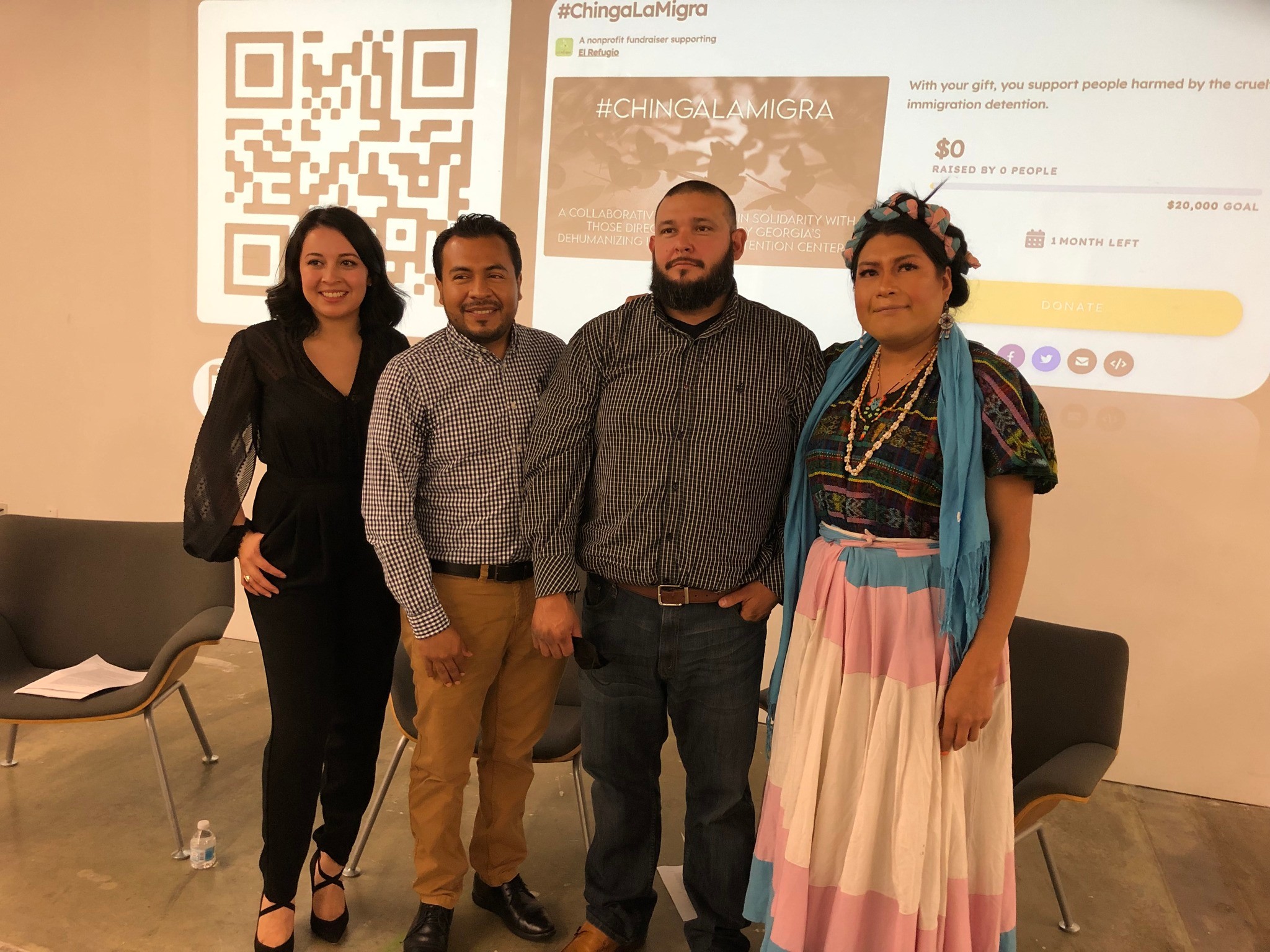
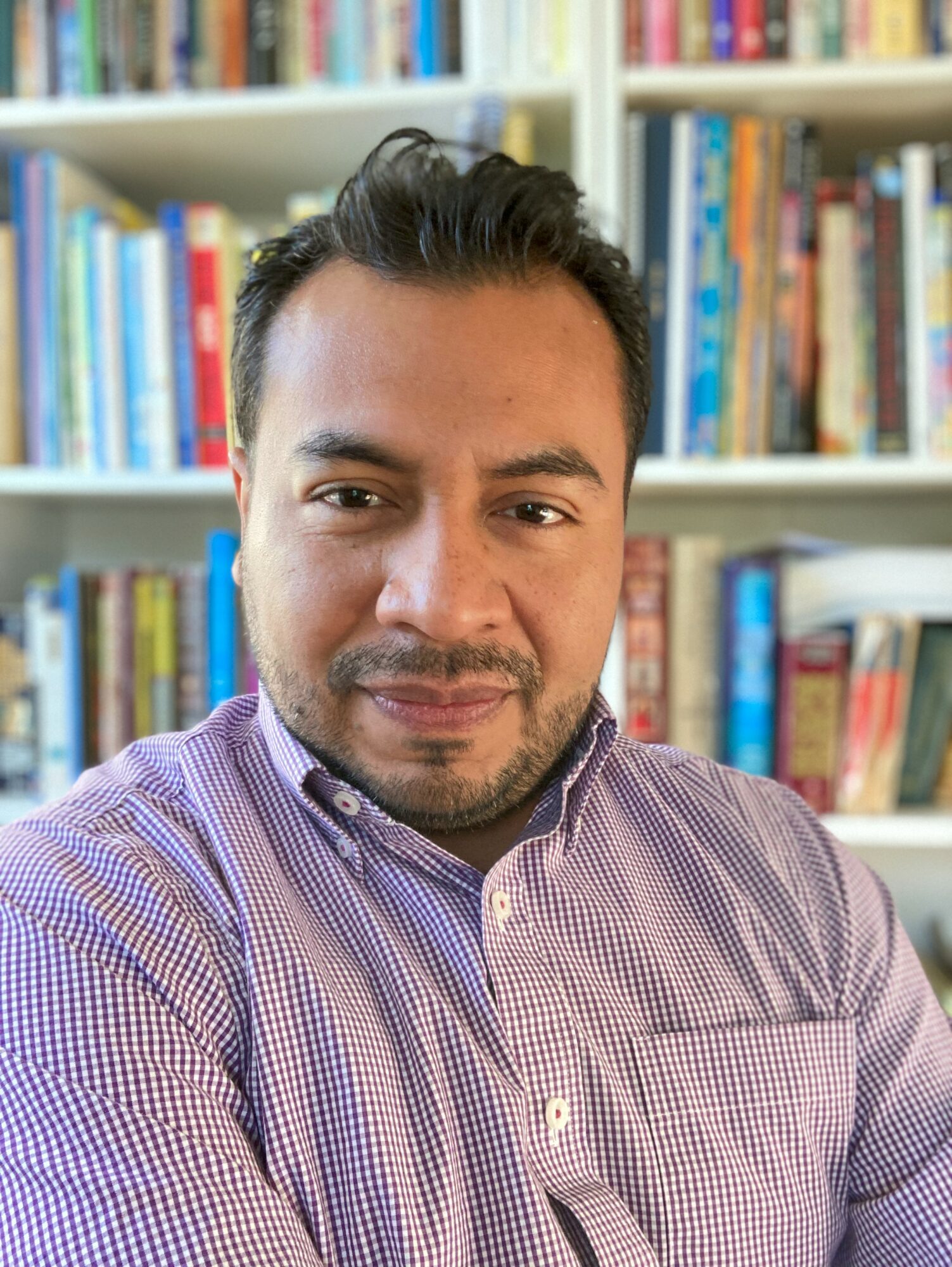
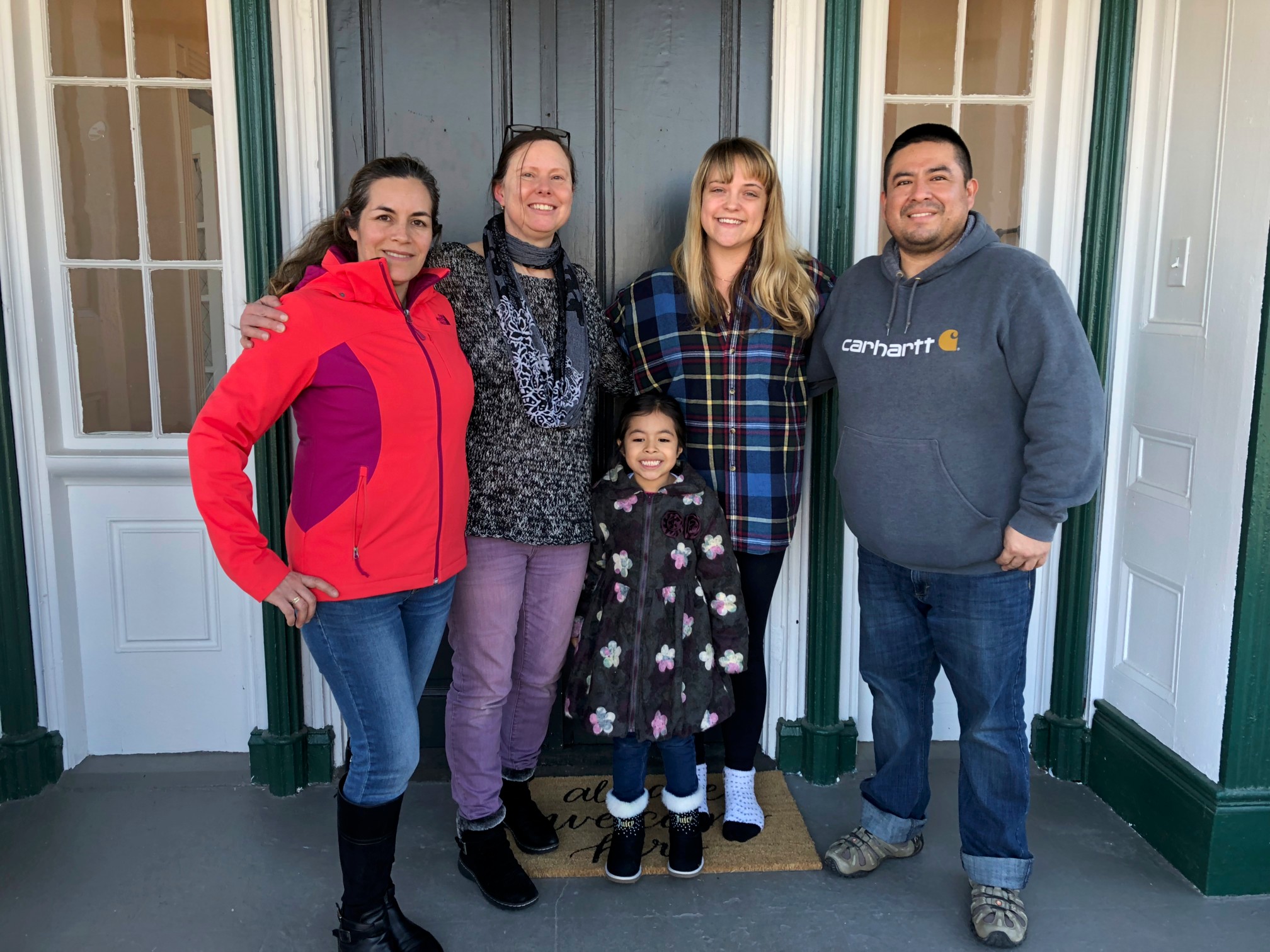
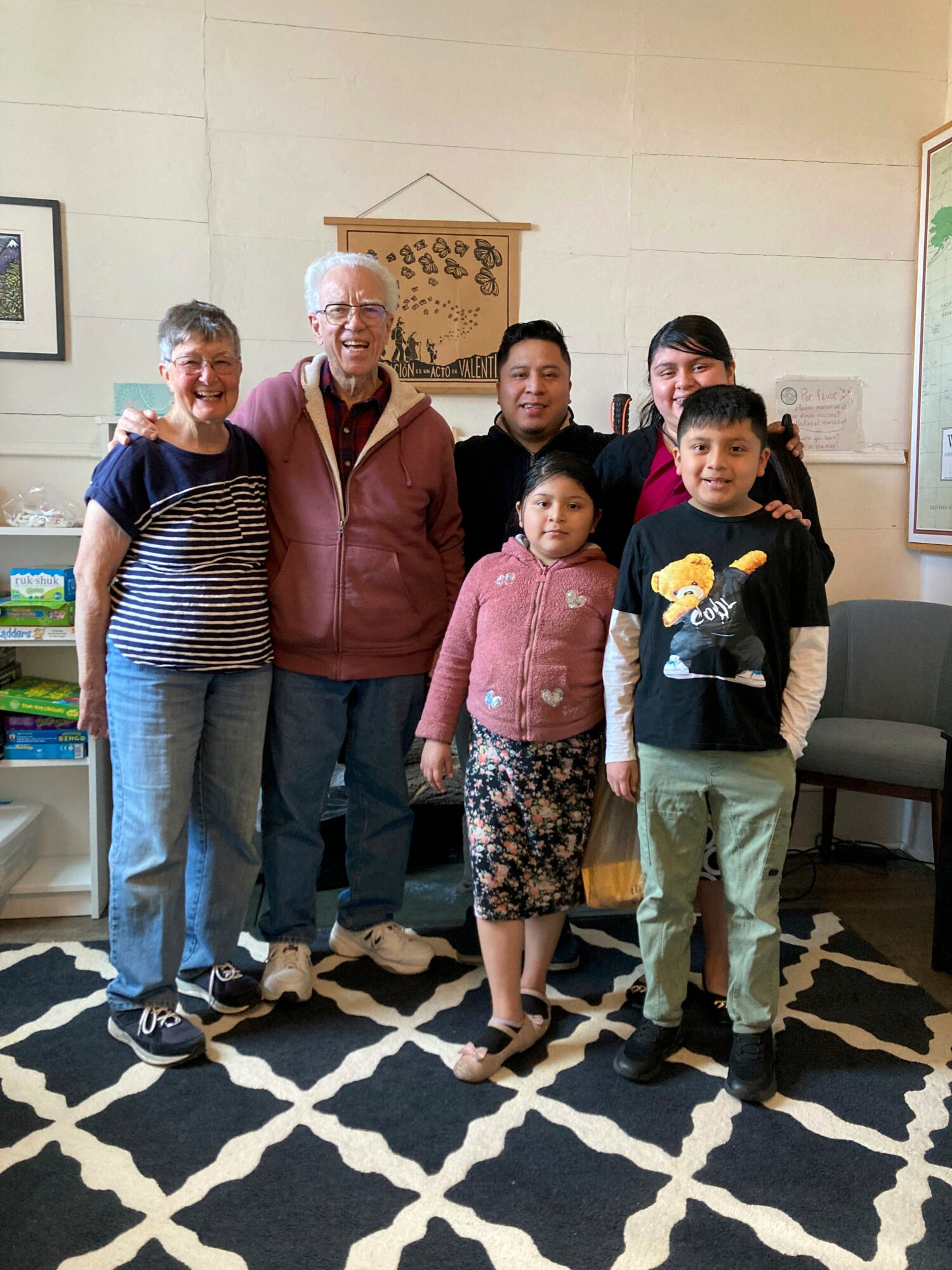
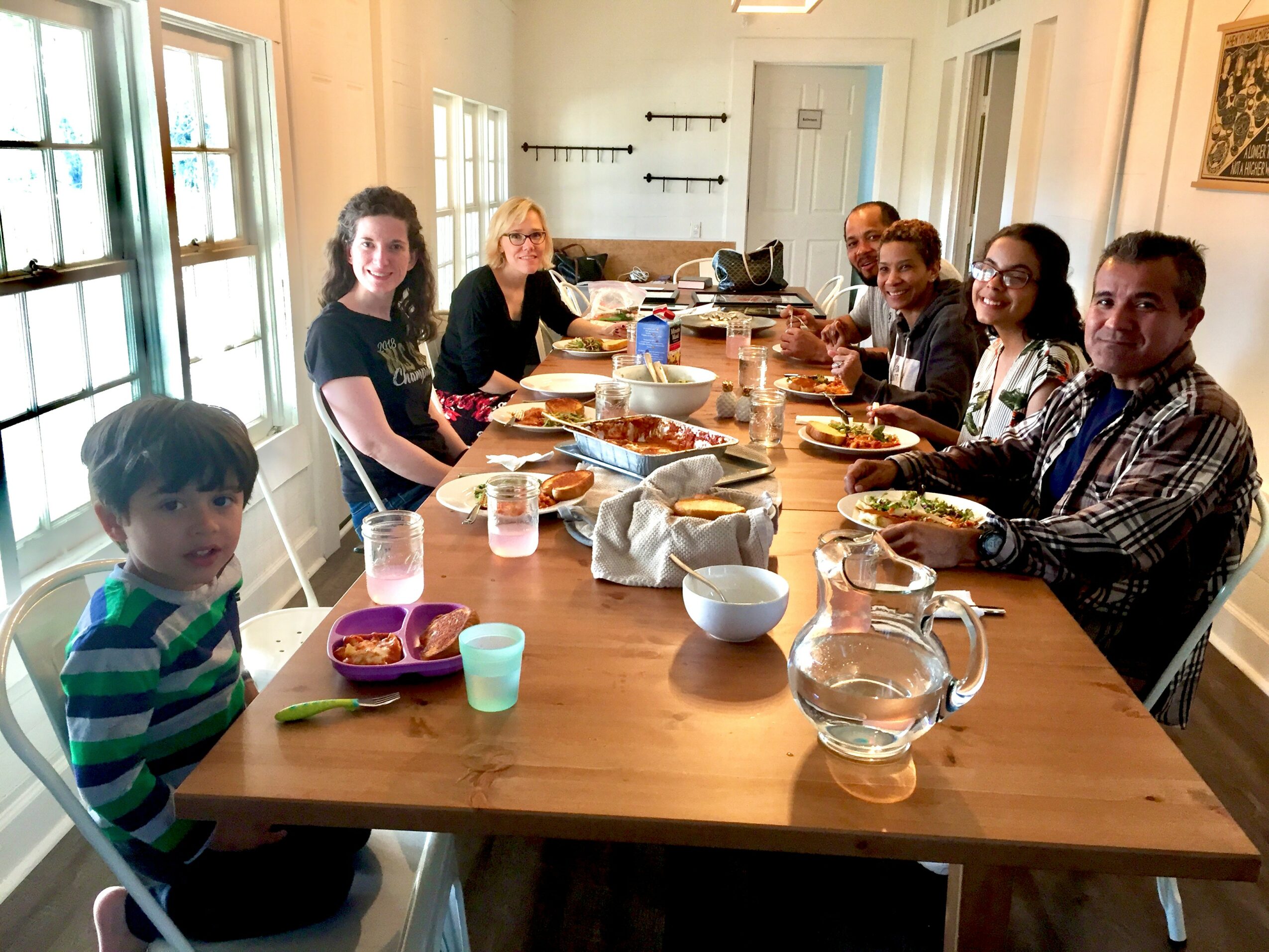
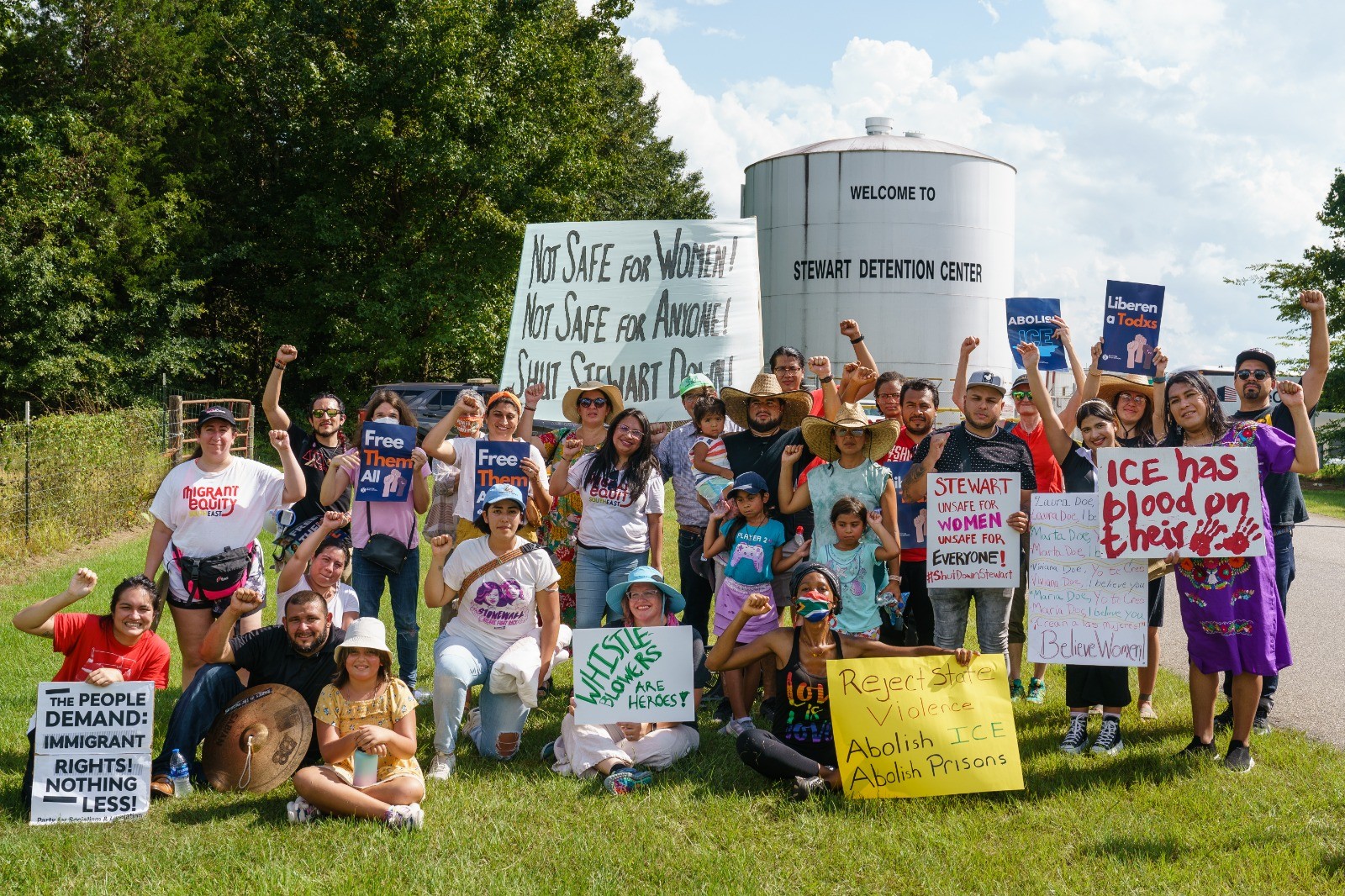
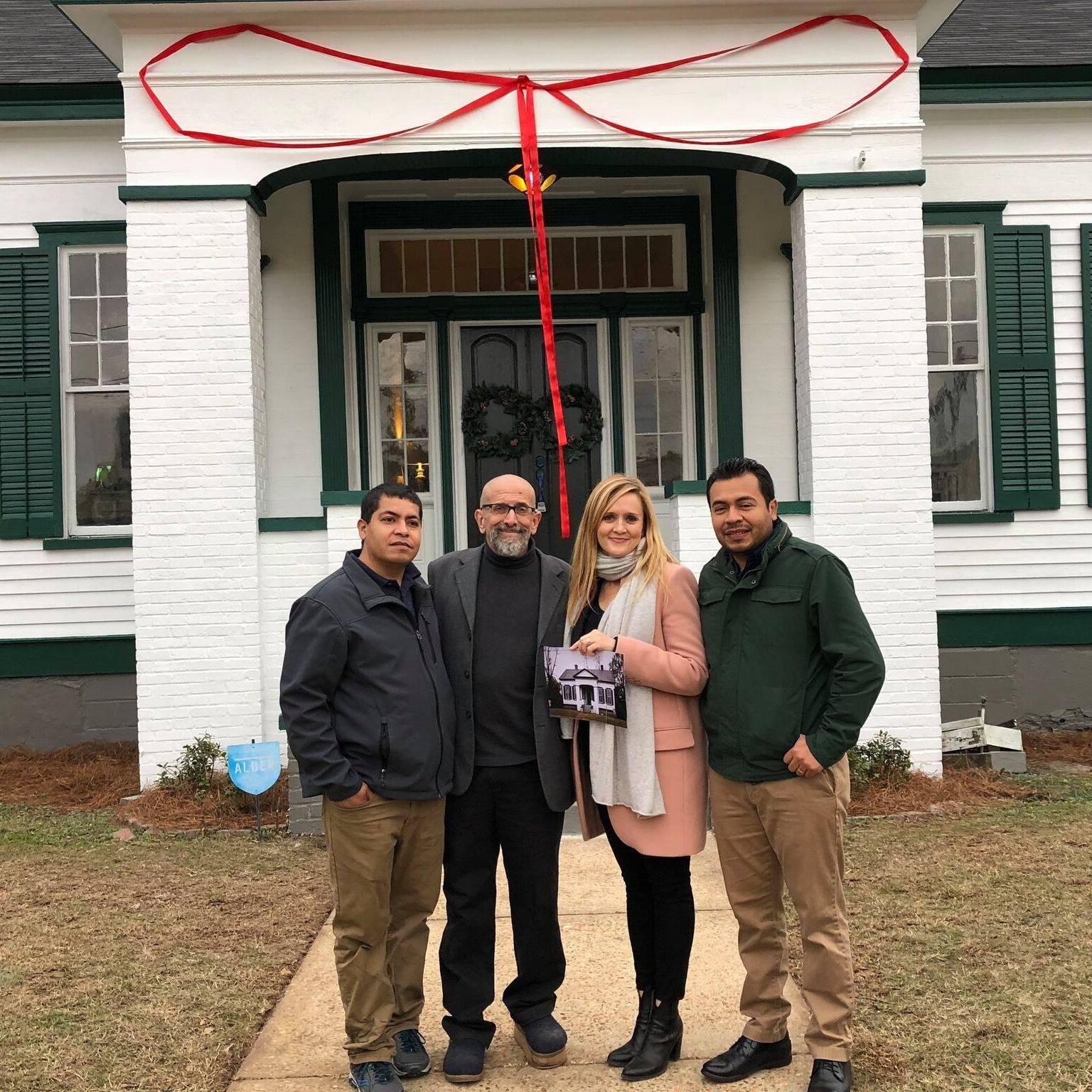 Image Credits
Image Credits
Group photo of activists with Stewart Detention Center water tank in the background, credit to Elijah Nouvelage.













